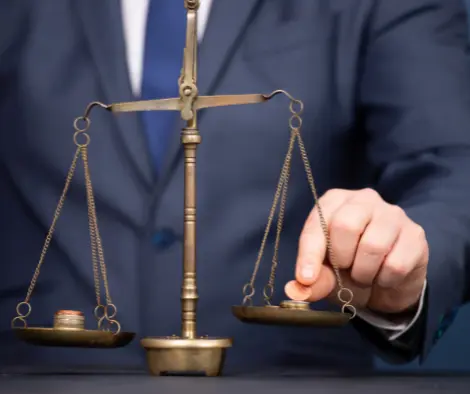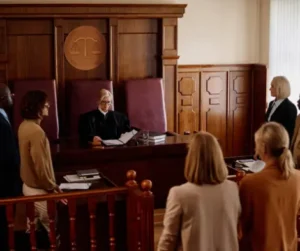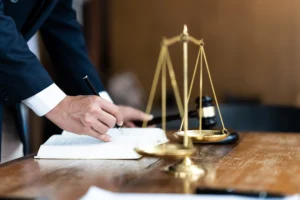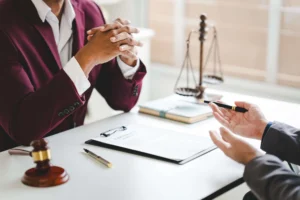

The Importance of Choosing the Right Attorney
Imagine needing life-saving surgery. Would you trust just any doctor, or would you carefully research and choose the best specialist? Choosing an attorney is no different. Whether you’re facing criminal charges, a civil dispute, or a family matter, the right lawyer can mean the difference between winning or losing your case. With thousands of attorneys available, making the best decision requires careful consideration of qualifications, experience, and reputation.
Legal matters are often complex, and the attorney you choose will influence the outcome of your case. The key is to find a lawyer whose skills and approach align with your specific legal needs.
Attorney Selection: What to Look For in a Lawyer
When it comes to attorney selection, a strategic approach is essential. Not all lawyers are created equal, and selecting the wrong one can lead to unfavorable results. The following factors are crucial when evaluating an attorney’s qualifications.
Specialization and Experience
Just as you wouldn’t hire a brain surgeon for a knee replacement, you shouldn’t hire a corporate lawyer for a criminal defense case. Law is highly specialized, and attorneys focus on different areas such as criminal law, personal injury, family law, and business law. Choosing a lawyer with a deep understanding of your type of case ensures better representation.
For example, in criminal cases, a defense attorney with years of experience handling trials, plea negotiations, and evidence challenges will offer better representation than a general practitioner.
Track Record and Reputation
A lawyer’s past performance is a strong indicator of future success. Research their win/loss ratio, read client reviews, and check for disciplinary actions. A lawyer with a history of successful cases and satisfied clients is more likely to deliver favorable results.
According to a survey by the American Bar Association (ABA), 70% of people rely on online reviews and referrals when selecting an attorney. Reputation matters, and word-of-mouth recommendations from friends, family, or trusted legal professionals can be invaluable.
Communication and Availability
Legal issues can be stressful, and you need an attorney who is responsive and communicative. If a lawyer is difficult to reach during the initial consultation, it’s a red flag. The best attorneys keep their clients informed, explain legal concepts in simple terms, and respond to inquiries promptly.
A good attorney should also be transparent about fees. Unexpected costs can add stress to an already challenging situation. Ask about billing structures—whether they charge hourly rates, flat fees, or contingency fees—so you know what to expect.
Legal Expertise: Why Experience Matters in Legal Representation
Understanding the Law
Legal expertise goes beyond just knowing statutes and regulations. A highly skilled attorney understands the nuances of the law and how it applies to different cases. They can anticipate the prosecution’s arguments, identify weaknesses, and craft strong legal strategies.
For example, in a criminal defense case, an experienced attorney may file motions to suppress evidence obtained unlawfully, potentially leading to a case dismissal. A lawyer without such expertise might overlook these opportunities.
Negotiation Skills and Courtroom Presence
Many cases are resolved before trial through settlements or plea agreements. A skilled attorney knows when to negotiate and when to fight in court. Their ability to present persuasive arguments can mean reduced charges, lower penalties, or even case dismissals.
In cases that go to trial, courtroom presence is crucial. Attorneys with extensive trial experience know how to handle cross-examinations, objections, and jury interactions effectively.
Familiarity with Local Courts and Procedures
Each jurisdiction has its legal procedures, judges, and prosecutors. A lawyer who regularly practices in your area will have valuable insights into local legal customs, giving you an advantage.
For example, some judges prefer brief and direct arguments, while others allow longer explanations. An attorney familiar with a judge’s preferences can tailor their approach accordingly.
Case Study: How the Right Attorney Changed the Outcome of a Criminal Case
To illustrate the importance of selecting the right attorney, let’s look at the case of James Carter, a man falsely accused of armed robbery.
The Arrest and Initial Mistake
James was arrested based on a shaky eyewitness identification. He initially hired an attorney who lacked experience in criminal defense and failed to challenge the prosecution’s weak evidence. As a result, James was convicted and sentenced to 10 years in prison.
The Appeal and Legal Strategy Change
Frustrated with the outcome, James’s family hired a seasoned criminal defense attorney with a strong track record. The new lawyer immediately identified flaws in the case, including unreliable witness testimony and mishandled forensic evidence.
The attorney filed an appeal and brought in expert witnesses to challenge the prosecution’s claims. They also uncovered surveillance footage proving that James was miles away at the time of the crime.
The Outcome
With compelling new evidence and strong legal arguments, the appellate court overturned James’s conviction. He was released after spending two years in prison for a crime he did not commit.
This case highlights how a knowledgeable and experienced attorney can make a significant difference in a legal battle.
Conclusion
Selecting the right attorney is one of the most important decisions you can make when facing a legal challenge. Whether it’s criminal defense, family law, or business disputes, the attorney’s expertise, communication, and reputation will shape your case’s outcome. By doing your research, asking the right questions, and trusting experienced professionals, you can ensure that you have the best legal advocate on your side.
Frequently Asked Questions (FAQs)
- How can I verify an attorney’s credentials?
You can check an attorney’s credentials through your state’s bar association website, where you can see their licensing status, disciplinary history, and areas of practice. - What questions should I ask during a consultation?
Ask about their experience with cases similar to yours, their success rate, legal strategy, fees, and expected outcomes. - Can I switch attorneys if I’m not satisfied?
Yes. If you feel your attorney is not representing you effectively, you have the right to seek new legal counsel at any stage of your case. - Do I need an attorney for minor legal matters?
While some legal matters can be handled without an attorney, professional legal advice is always recommended to avoid costly mistakes or legal repercussions. - How do I know if an attorney is the right fit for me?
Beyond credentials, trust your instincts. If an attorney listens attentively, answers questions clearly, and makes you feel confident in their abilities, they’re likely a good fit.



